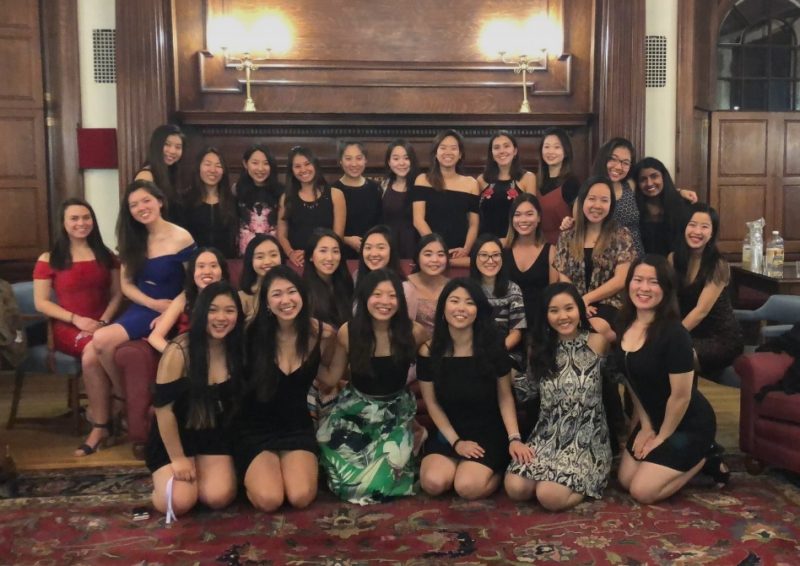Asian American Students Unite After Soka University Told Survivor to ‘Get Over’ Sexual Harassment
A few months ago, a college student at Soka University named Grace* reached out to me via social media to share her story of experiencing sexual harassment and to vent her anger at the school for how they have previously handled and discussed such harassment on campus. As an Asian American woman and survivor of physical and sexual violence myself, her story struck a very personal chord for me, and I knew that we had to elevate our banter over Instagram to be a public one. When I share my story, people seem to often react with disbelief – but the unfortunate truth is that such experiences as rape, sexual assault, and domestic violence (especially in college) are much too common.
Up to 19% of women will experience sexual assault in college, and the majority of undetected rapists on campus are “serial perpetrators, committing an average of 6 rapes each.” There is an indisputable effect that experiencing rape has on the mental health and ability to participate in both social and academic settings in school — 34% of these survivors will experience Post Traumatic Stress Disorder (PTSD) and 33% will experience depression.
Asian Americans are the “least likely to report rape and physical assault of any racial or ethnic group,” so while the Department of Justice found that 7% of Asian American women had experienced rape in 2000, and a recent study found that up to 55% report experiencing physical or sexual violence, those percentages are most likely much too low.
Grace experienced sexual harassment multiple times throughout her time at Soka University since the very first week of school. Last year she wrote about her experiences in a Facebook post in response to the angering lack of action she was seeing from the schools’ Title IX coordinators. Despite presenting evidence about all incidents and sharing how the trauma has been preventing her from sleeping and feeling safe attending class, she was told by one of them that sexual harassment was “just a ‘phase’ I’d have to get over in order to become a woman.” In Asian American culture, Grace feels that there is a strong sense of shame around even mentioning traumatic experiences and discussing mental health.
Since Grace and I met, she has connected me with a number of other students at Soka who have had similar experiences both in experiencing sexual harassment and assault on the campus as well as received the same sort of treatment from their Title IX coordinators. They have banded together to work on leading a movement to break the stigma around talking about such experiences, fight victim-blaming, and demand justice and protection from the institution. In the last few months, Grace’s group has published an open letter detailing the offensive and problematic responses from one of the Title IX coordinators on campus and launched a petition demanding reform around the issue (which has since been signed by over 75% of the student body).
Grace’s personal hope is to foster a culture where “people feel it is okay to talk about sexual assault and harassment, and that people feel it is their right, which it is, to feel safe and supported” on campus. Students at Harvard College, where I am currently a sophomore, are fighting for the same right, most recently with a social media campaign and a week of stigma-shattering events.
Last year, several student groups at Harvard collaborated to produce the API Fighting Gender Violence Initiative, which brought in industry professionals “to educate the Harvard community about gender based violence.” This week-long education program was primarily led by two students: Aaron Kruk (Class of 2020) a member of the Asian American Brotherhood, and Tiffany Lam (Class of 2018) a member of the Organization of Asian American Sisters in Service.

Aaron says it is “important that we make our voices heard and address problems of gender inequality inside of our communities” because “Asian Americans are often overlooked when it comes to issues which disproportionately affect minorities.” Discussions around topics like sexual assault, mental health, and trauma overall are often repressed in Asian American communities. Tiffany says that “certain stereotypes exist that may perpetuate sexual assault,” and we must break the stigma around it in Asian American communities because it currently silences survivors.
So, let’s talk about it. I have found (for myself) that there is a power in sharing my personal story of experiencing gender violence because it reminds me that I am not alone, I did not deserve (nor does anyone deserve) to experience such abuse, and collectively we can fight for that right to report, be heard, and live our lives feeling safe and supported. Take notes from students like Grace, Aaron, and Tiffany, and join them in mobilizing to break the stigma and demand justice.
*Grace’s name has been changed for purposes of this article to protect her safety
Nadya Okamoto is a social entrepreneur and activist, known for her leadership as the Founder and Executive Director of the non-profit organization PERIOD.
Feature Image (right) via Wikimedia Commons/Beyond My Ken (CC BY-SA 4.0)
The post Asian American Students Unite After Soka University Told Survivor to ‘Get Over’ Sexual Harassment appeared first on NextShark.
✍ Sumber Pautan : ☕ NextShark
Kredit kepada pemilik laman asal dan sekira berminat untuk meneruskan bacaan sila klik link atau copy paste ke web server : https://ift.tt/2rhZwJb
(✿◠‿◠)✌ Mukah Pages : Pautan Viral Media Sensasi Tanpa Henti. Memuat-naik beraneka jenis artikel menarik setiap detik tanpa henti dari pelbagai sumber. Selamat membaca dan jangan lupa untuk 👍 Like & 💕 Share di media sosial anda!




















Post a Comment